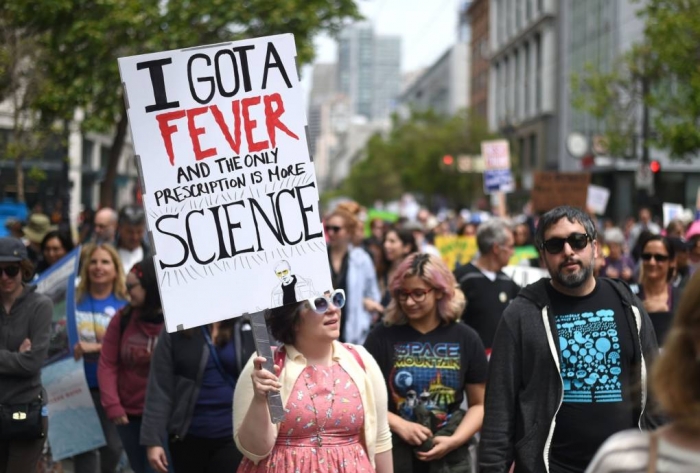On both sides of the Canadian-American border, governments are enacting environmentally harmful policies. Canadian Prime Minister Justin Trudeau is, controversially, expanding the Kinder Morgan Pipeline, and American President Donald Trump plans on weakening fuel economy regulations, which would counter former president Barack Obama’s strides in reducing greenhouse gas emissions through creating efficient fuel standards for transportation vehicles. To respond to these policies, Montreal will hold the March for Science on April 14, co-hosted by the March for Science and Evidence for Democracy organizations. This annual event has been held in cities from coast to coast with the goal of bringing together communities by celebrating science and advocating for evidence-based policy.
Bishop’s University student Vince Scully is the main organizer of the event. When describing the origins of the march, Scully described it as having originated from similar marches in the United States. “It was an American event in the beginning,” Scully told The McGill Tribune. “Once Trump was elected, he started trying to silence all the scientists. To counter his actions, specifically what he’s been doing with the Environmental Protection Agency (EPA), a march was created. Now, there have been over 50 marches in cities around the planet to support them.”
As solutions to environmental issues continue to be negated, events such as these are crucial to gathering public support to make issues visible in spite of a government trying to hide the truth.
“With the march we hope to show people that without science you can’t have a democratized world,” Scully said. “Scientists are being silenced all the time, and they can’t talk about what [their] research is about [or] what [they’re] doing to make the world a better place. Similarly to what we saw when Harper was prime minister, the government continues to silence scientists and journalists.”
Scully explained that the movement also hopes to bring attention to the censorship of people working for environmental agencies in the government. Employees of these organizations are often limited by their superiors in the extent to which they can express their thoughts on environmental issues.
“The EPA doesn’t allow people to voice their concerns about a lot of things,” Scully said. “Scientists working for the EPA can’t write a bunch of words like ‘climate change’ in their documents. We’re trying to get that voice back.”
While the event is a great way to educate attendees about current environmental issues, it also offers a space for students and scientists to come together and take a stance in showing their support for environmental action.
“Science is an integral part of society,” Scully said. “We need it in order to move forward as a community and a country. An event like this is important for anyone who wants to be a part of working towards a better future. Specifically for students, what we’re trying to do [through this event] is show that they have a voice and if they work hard enough they can make themselves heard in order to make political change.”
Whether you have a passion for environmental policy, or simply want to learn about current environmental issues, Scully encourages you to do so alongside a community of supporters and attend the March for Science on April 14.
“Through making ourselves heard, we can make the world look more like what we want,” Scully said. “We can make it more environmentally-friendly and more peaceful. If we don’t do everything in our power to get our point across, the government will keep doing what they’re doing and nothing will change.”








